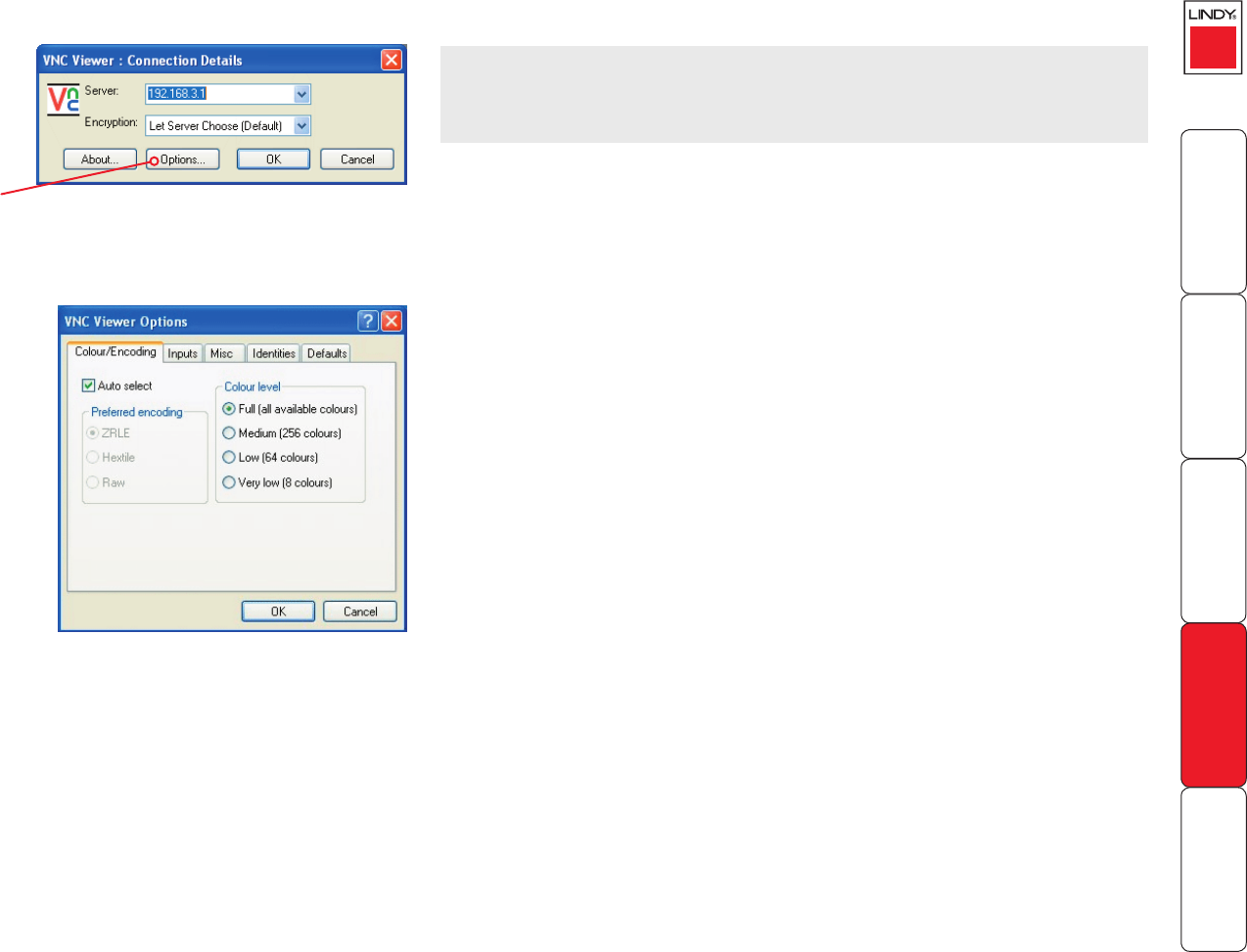
39
There are ve tabbed pages of options:
Colour/Encoding
Auto select
When ticked, this option will
examine the speed of your
connection to the CPU IP and apply
the most suitable encoding method.
This option is suggested for the
majority of installations.
Preferred encoding
There are three manually selectable
encoding methods which are
accessible when the Auto select
option is unticked.
• ZRLE – This is a highly compressed method that is best suited to slow
modem connections.
• Hextile – This method offers better performance than the ZRLE when used
over a high speed network because there is no need for the CPU IP to spend
time highly compressing the data.
• Raw – This is a primitive, uncompressed method that is mainly used for
technical support issues. You are recommended not to use this method.
Appendix 2 - VNC viewer connection options
When you are connecting to the
CPU IP using the VNC viewer, a
number of options are available.
Click here to access the options
Colour level
This section allows you to select the most appropriate colour level for the
speed of the connection to the CPU IP. Where the connection speed is slow or
inconsistent there will be a necessary compromise between screen response and
colour depth.
• Full – This mode is suitable only for fast network connections and will pass
on the maximum colour depth being used by the host system.
• Medium (256 colours) – This mode reduces the host system output
to a 256 colour mode and is more suitable for ISDN and fast modem
connections.
• Low (64 colours) – This mode is suitable for slower modem connections
and reduces the host system output to 64 colours.
• Very low (8 colours) – This mode provides very rudimentary picture
quality and hardly any speed advantage over the 64 colour setting. You are
recommended not to use this mode.
IMPORTANT: If you make any changes to the options given here and wish to
retain them for successive connection sessions, you must save the changes.
To do this, change to the ‘Defaults’ tab and click the ‘Save as defaults’ button.


















